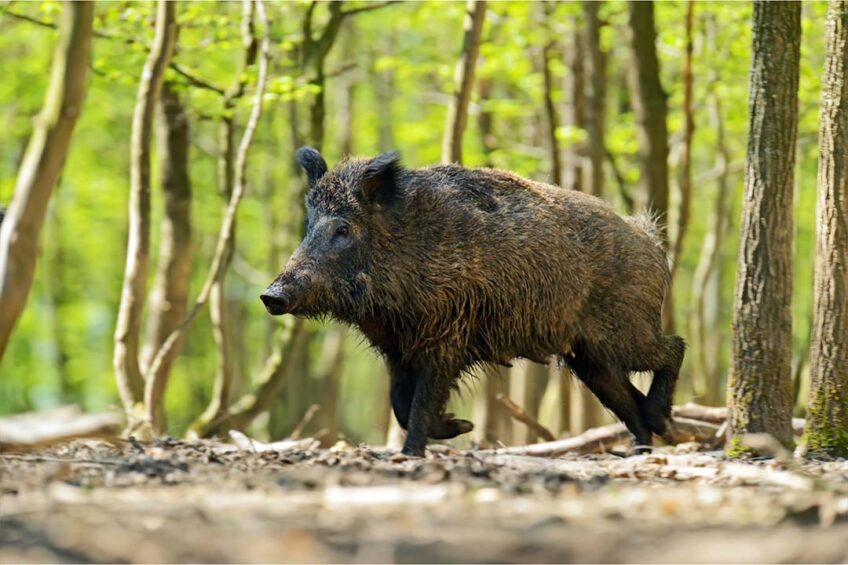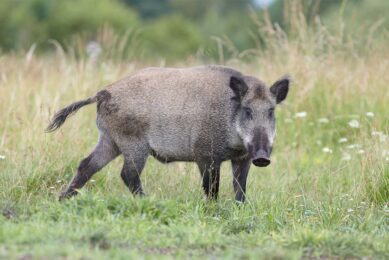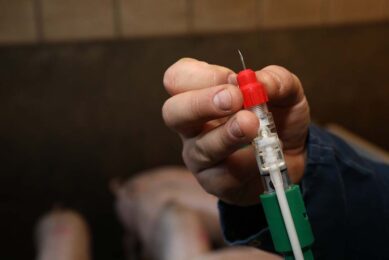ASF Sweden: Outbreak seems to get resolved in record time

The African Swine Fever (ASF) outbreak in wild boar in Sweden appears to head for a very quick, textbook solution. The Swedish authorities hope he country can be officially declared free from ASF in the fall of this year.
In September 2023, quite surprisingly the virus emerged in a Swedish wild boar population in a foresty zone near Fagersta, Västmanland county, at about 145km north west of the country’s capital Stockholm. Up until today, 62 outbreak locations have been identified in a fenced core zone that comprises about 100 km². Late 2023, the zone officially identified as infected was reduced slightly, a first sign that the infected area most likely wasn’t growing.
Last ASF positive boar died
In a conversation with Pig Progress, Dr Karl Ståhl, state epizootiologist at the Swedish Veterinary Agency (SVA) said according to the assessments of death dates carried out no wild boar have of ASF in the area since the end of September, even though the last finding dates are from November 24, 2023.
He said, “We believe that currently there is no active ASF in this area. Everything that was found in November was just older carcasses and many cases were just pieces of skeleton, think of a foot or a skull. But no freshly infected animals.”
Deep below the snow obviously there could be remaining virus left, but based on the findings so far any remaining contamination of the environment is likely to be limited
No more ASF positive carcasses
As Sweden is located relatively north, the country is going through winter, with daytime temperatures going as low as -20°C. Dr Ståhl said, “Deep below the snow obviously there could be remaining virus left, but based on the findings so far any remaining contamination of the environment is likely to be limited. Also the remaining number of wild boar in the restricted zone is low. Therefore, although we can’t rule out that additional sporadic cases could occur once potentially remaining virus reemerge from underneath the snow, it seems very unlikely that the outbreak will take another direction. We feel that the situation is very much under control.”
Wild boar can deal with harsh outdoor conditions, he added. “There are a few other wild boar populations in Sweden, even to the north of this area.”
Culling of wild boar continues
With regard to the imminent future, Dr Ståhl said that culling operations are continuing. “The authorities would like to make sure that the last live wild boar within the fenced area will be gone – even though the number is already low. In addition, once the weather conditions allow it, we will resume carcass search to remove as much as possible of remaining carcasses. Perhaps we will also involve dogs in a more systemic way this time, so far that has not happened.”
Sweden hopes to be ASF free late 2024
If indeed the last Swedish wild boar to die of ASF succumbed by the end of September 2023, in the most optimistic scenario the country could be declared free from ASF 1 year later, so late September or early October 2024. Dr Ståhl added, “This is what we aim at, and it would be fantastic if it will be achieved.”
Garbage dump likely origin of ASF infection
As for a likely origin of the infection, he pointed to the garbage dump close to Fagersta, and located the epicentre of the outbreak. “About 15 years ago there were almost no wild boar in this area. According to the local hunters, the garbage dump, which has served as source of food for the local wild boars has inflated the population,” he said. The virus did get sequenced, but that didn’t give any conclusive outcome as to where the virus might have originated. He said, “We can only say that it most likely was introduced through contaminated pork originating from a country (in e.g. Europe or Asia) affected by ASF genotype 2, and that ended up in the garbage dump or in the surrounding environment at reach for hungry wild boar.”
There were favourable conditions, but I also think the prompt and effective response has contributed to the positive developments
Systematic approach of ASF outbreak in Sweden
Sweden was the 24th country in Europe in which ASF virus was discovered. In the vast majority of all those countries, the virus managed to spread to become sort of endemic in the local wild boar population.
In Sweden, however, things appear to have taken a different turn. Dr Ståhl commented, “I think we have managed the outbreak very well and in a systematic and timely way. Many actors have been involved, and there has been a very good collaboration: between the involved authorities and the hunting associations and hunters, as well as with local communities and many others. As an example, we had several hundreds of local hunters on the ground in the area searching after carcasses already one week after the first detection, and this initially on voluntary basis. And the fact that the fence was up relatively quickly can also be considered a success factor.”
“But there are other important factors that surely has contributed to the favourable development. Most importantly, this is an area with a limited wild boar population more or less at the border of the geographical distribution of the species in Sweden. Large parts of it, as well as the areas tot he west and north, consist of lean boreal forests which is not a favourable habitat for wild boar.
Lucky timing
“In addition, we were most likely a bit lucky with the timing. During the summer time when the outbreak probably started the wild boar prefer to be in the periphery of the affected area where there are more crops, with relatively lower numbers of wild boar remaining in the core area. This may have halted the spread during the early phase, before the outbreak was detected.
“So to conclude, there were favourable conditions, but I also think the prompt and effective response has contributed to the positive developments,” said Dr Ståhl, also pointing to the rapid presence of the colleagues in the veterinary emergency team from the EU, as well as advice and support of colleagues from other European countries that dealt with ASF before.
 Beheer
Beheer








 WP Admin
WP Admin  Bewerk bericht
Bewerk bericht